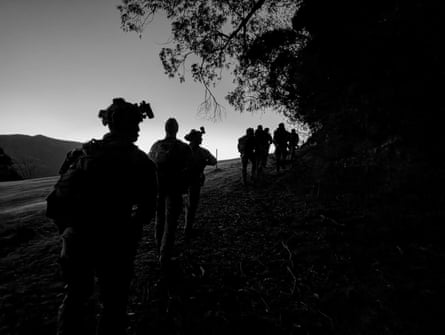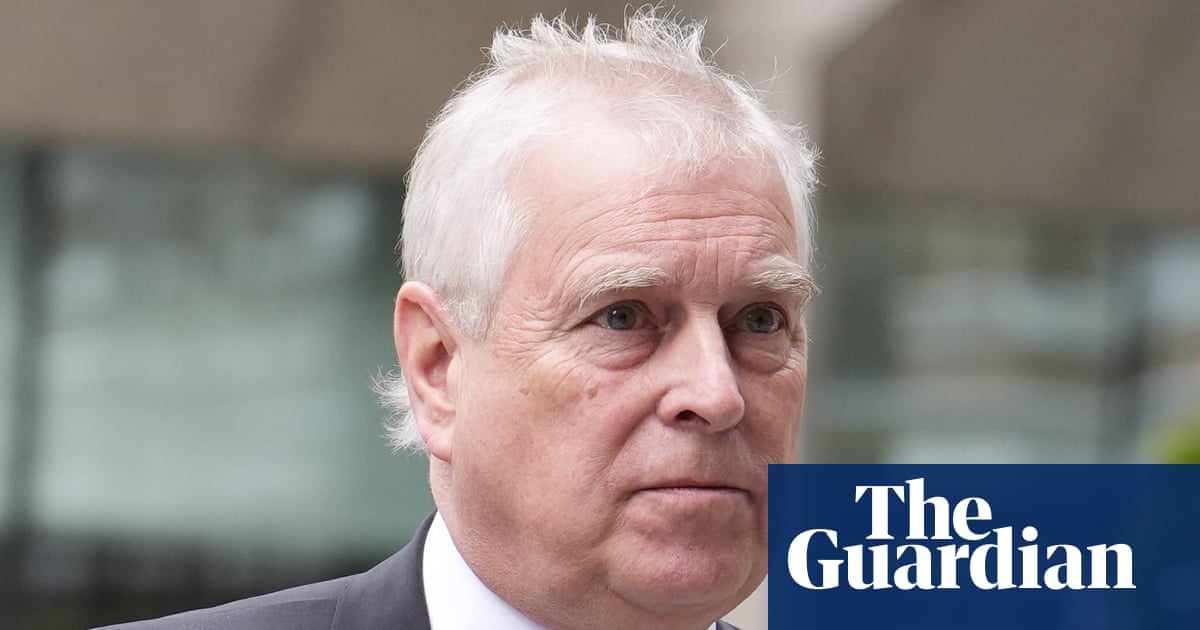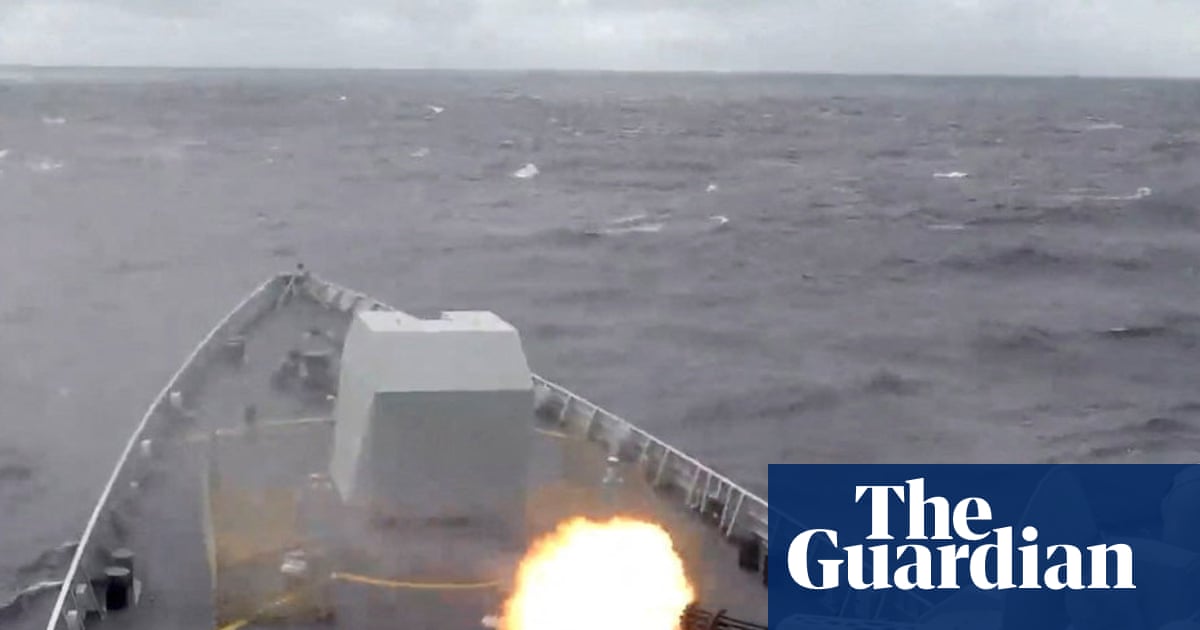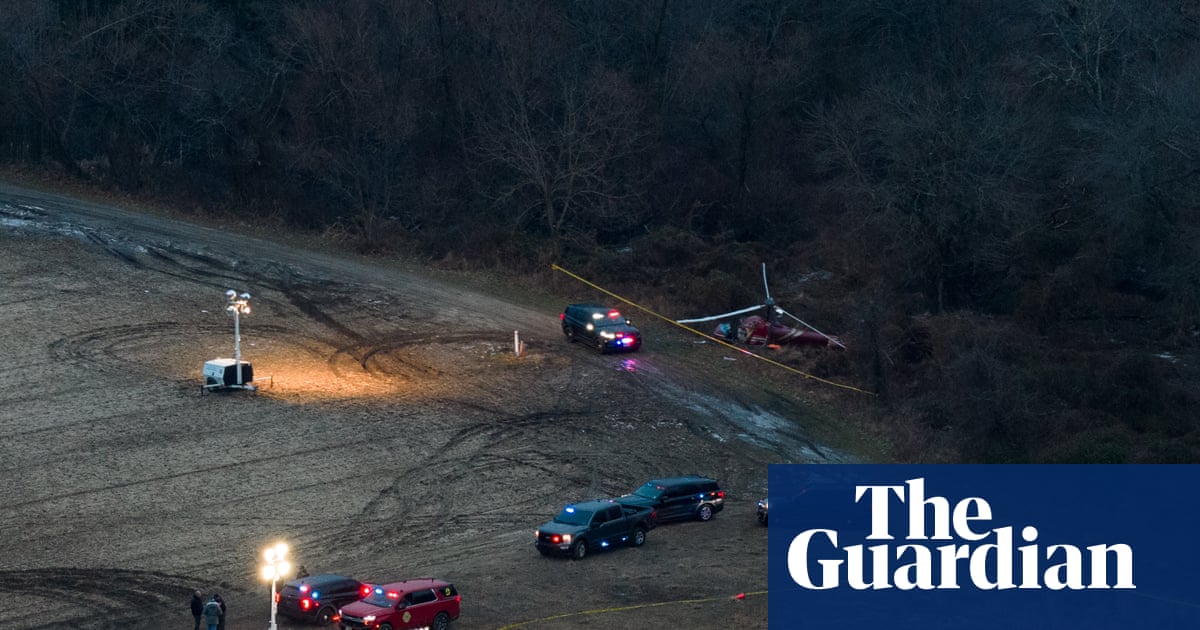As the search for fugitive Dezi Freeman hits the one-month mark, questions are growing about when police may draw “a line in the sand” and call it quits.
The suspected Porepunkah police killer, also known as Desmond Filby, has been on the run since 26 August, when he allegedly shot and killed two officers who were part of a group executing a search warrant at his residence in Victoria’s north-east.
About 450 officers have been scouring the Porepunkah area, and in early September more than 125 specialist officers conducted the country’s “largest ever tactical policing operation”, but have found no sign of the alleged shooter.
The Macquarie University criminologist Vince Hurley said it would be reasonable for the search to continue for another two months before being called off.
“The fact that they’re still out there, one would think that they either have a reasonable idea, or they’re not completely satisfied with the search,” Hurley said.
“They want to make sure that they’ve really covered everything, every possible lead, cave, everything.”
Sign up: AU Breaking News email
But there would come a point when management would consider the hard decision to withdraw, the retired Victoria police detective senior sergeant Charlie Bezzina said.
Police resourcing for travel, accommodation and meals of officers redirected from other teams to Porepunkah and the cost of operating equipment would have put a huge dent in the force’s bottom line, he said.
By the time the search is completed the cost “may well be into the millions”, Bezzina estimated, causing “a major impact on the police operating budget”.
“It just cannot go on for infinitum. It has to have a line in the sand somewhere,” he said.

Hurley said there were three options: Freeman was dead, he was being assisted by members of the public, or he had escaped on his own.
Surviving by himself for that long in the wilderness would be hard, and although unlikely, it was not completely unheard of, Hurley said, citing the case of Malcolm Naden, who was captured in New South Wales in 2012.
“He was on the run for seven years,” Hurley said.
after newsletter promotion
Naden was captured after one of the biggest manhunts in NSW history. In 2013 he was imprisoned for life without parole for murdering two women.
Naden camped out in bushland around Nowendoc, and broke into nearby properties to steal food, clothing, alcohol and weapons.
In 2011, police closed in on him but Naden shot an officer from the tactical operations unit in the shoulder and escaped. He was captured a year later, hiding in a cabin west of Gloucester.
“The difference between him and Freeman is Naden had 48 hours head start on the police,” Hurley said. “The police didn’t know who they were looking for until 48 hours after he murdered the two women.”
Victoria police have offered a $1m reward and the possibility of indemnity for information leading to the capture of Freeman, the largest financial offer in the state’s history for facilitating an arrest.
Local businesses have pleaded for visitors to return to the region after travel restrictions were reduced for Porepunkah and nearby towns three weeks into the search, but Mount Buffalo national park remained closed.
Businesses that lost money during the search became eligible for $5,000 grants, as many missed out on a bumper snow season as the final stops for snow seekers en route to Mount Hotham and Falls Creek snow resorts.

 3 months ago
49
3 months ago
49

















































